Gene editing medicines

This meeting explored the innovations that are transforming the future of gene editing medicines.
Just 12 years after the discovery of CRISPR/Cas9, the first gene editing medicines have been approved and many more are in clinical development. This meeting explored the innovations that are transforming gene editing medicines and their impact on patient health.
The potential applications of gene editing technologies for treating diseases are beginning to be realised. The science underpinning gene editing medicines continues to develop at a rapid pace, and clinical applications are growing. However, challenges in terms of manufacturing, scale-up, regulation, equitable access, health economics and safety make the widespread roll-out of these medicines difficult.
This two-day conference discussed recent advances, future priorities, and the wider social and economic context for the application of gene editing approaches in a healthcare setting.
Transforming our future conferences
This conference forms part of the Royal Society's industry-focused Transforming our future series. These unique meetings feature cutting-edge science and bring together experts from industry, academia, healthcare settings, funding bodies, the wider scientific community and government to explore and address key scientific and technical challenges of the coming decade.
Download the conference report
View the conference recording
Click 'Watch on YouTube' to view the full video playlist.
Organisers
Schedule
| 09:00-09:05 |
Welcome and opening remarks
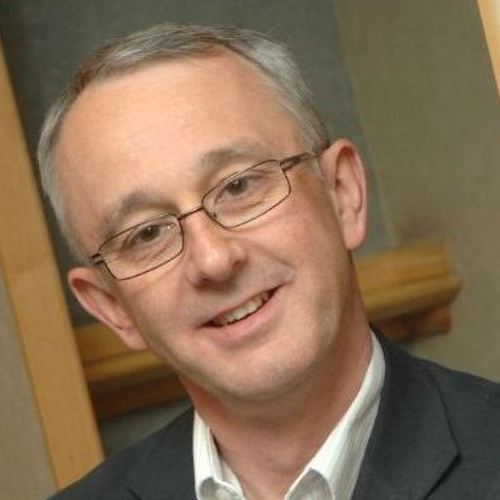
Steve ReesAstraZeneca 
Steve ReesAstraZeneca Steve Rees is Senior Vice-President of Discovery Sciences at AstraZeneca with responsibility for the discovery of novel drug candidates, using multiple therapeutic modalities, for projects for all AstraZeneca therapy areas. Prior to his current appointment Steve held positions of increasing responsibility at AstraZeneca including leadership of the Discovery Biology and Screening Sciences and Sample Management departments. He has served as Chair of the European Laboratory Research and Innovation Group, Chair of the European Council of the Society of Laboratory Automation and Screening and as Industry Trustee of the British Pharmacological Society and is a member of the Royal Society Science, Industry and Translation Committee. Steve was awarded an OBE by Her Majesty the Queen in 2021 for services to science and the COVID19 response. |
|---|---|
| 09:05-09:25 |
CRISPR/Cas9-based in vivo gene editing for transthyretin amyloidosis
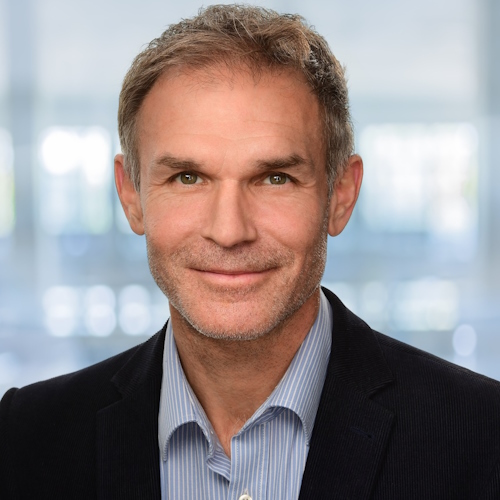
Professor Julian GillmoreUCL 
Professor Julian GillmoreUCL Professor Julian Gillmore is a clinical academic who undertook MD and PhD degrees in the field of amyloidosis. His research interests include pathogenesis, diagnosis and treatment of amyloidosis. He was appointed Centre Head at UCL’s Centre for Amyloidosis in 2019 and is research lead at the UK National Amyloidosis Centre. He highlighted for the first time in a systematic fashion, the relationship between the abundance of amyloid fibril precursor proteins, the course of amyloid deposits and clinical outcome in a number of different forms of amyloidosis thereby establishing the paradigm for the treatment of all the systemic amyloidoses. He established the ‘non-biopsy’ diagnostic criteria for cardiac transthyretin (ATTR) amyloidosis which have been adopted worldwide and have directly contributed to the huge increase in awareness and diagnoses of this form of cardiomyopathy. |
| 09:25-09:30 |
Q&A
|
Chair

Steve Rees
AstraZeneca

Steve Rees
AstraZeneca
Steve Rees is Senior Vice-President of Discovery Sciences at AstraZeneca with responsibility for the discovery of novel drug candidates, using multiple therapeutic modalities, for projects for all AstraZeneca therapy areas. Prior to his current appointment Steve held positions of increasing responsibility at AstraZeneca including leadership of the Discovery Biology and Screening Sciences and Sample Management departments. He has served as Chair of the European Laboratory Research and Innovation Group, Chair of the European Council of the Society of Laboratory Automation and Screening and as Industry Trustee of the British Pharmacological Society and is a member of the Royal Society Science, Industry and Translation Committee. Steve was awarded an OBE by Her Majesty the Queen in 2021 for services to science and the COVID19 response.
| 09:30-09:35 |
Introduction to Session 1

Steve ReesAstraZeneca 
Steve ReesAstraZeneca Steve Rees is Senior Vice-President of Discovery Sciences at AstraZeneca with responsibility for the discovery of novel drug candidates, using multiple therapeutic modalities, for projects for all AstraZeneca therapy areas. Prior to his current appointment Steve held positions of increasing responsibility at AstraZeneca including leadership of the Discovery Biology and Screening Sciences and Sample Management departments. He has served as Chair of the European Laboratory Research and Innovation Group, Chair of the European Council of the Society of Laboratory Automation and Screening and as Industry Trustee of the British Pharmacological Society and is a member of the Royal Society Science, Industry and Translation Committee. Steve was awarded an OBE by Her Majesty the Queen in 2021 for services to science and the COVID19 response. |
|---|---|
| 09:35-09:55 |
CRISPR on Drugs: Pharmacological Enhancement of Genome Editing
The CRISPR-Cas9 system is a transformative tool for genome engineering, yet achieving efficient gene insertion and repair remains a critical challenge, particularly in slowly dividing cells. At AstraZeneca, we have focused on enhancing targeted gene integration through the application of small molecules that modulate double-strand break repair pathways. Employing a two-inhibitor strategy (2i), we significantly boost the outcomes of nuclease-dependent editing, increasing both precision and efficiency in gene repair. Using engineered proprietary nucleases encapsulated in lipid nanoparticles (LNP) and a novel AAV vector configuration, we have demonstrated effective in vivo gene repair in an animal model of homozygous familial hypercholesterolemia, highlighting the potential for therapeutic interventions. 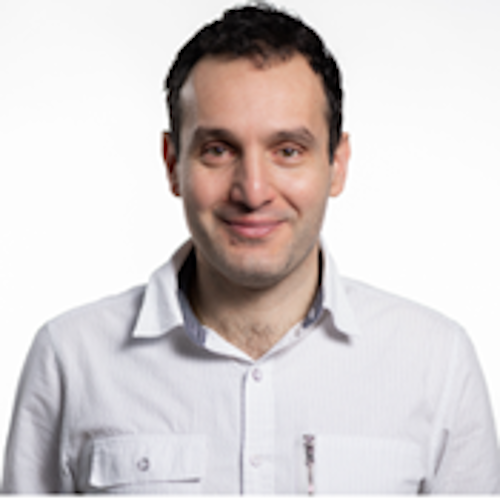
Marcello MarescaAstraZeneca 
Marcello MarescaAstraZeneca Marcello Maresca is a Senior Director at AstraZeneca and currently leads the Genome Engineering department. He received his PhD in Molecular Biology from the Max Planck Institute of Molecular Cell Biology and Genetics in Dresden, where he focused on developing recombineering, a widely used genome engineering tool in bacteria. After his PhD, he pursued postdoctoral work at the Novartis Institute of BioMedical Research in Cambridge, MA, USA, where he worked on developing and applying genome editing tools in drug discovery. Currently, at AstraZeneca and Alexion, Marcello and his team are working to establish Genome Editing as a novel therapeutic modality. |
| 09:55-10:15 |
Genetic engineering of hematopoietic stem cells to treat human disease: state-of-the-art and future perspective
Genetic engineering of hematopoietic stem cells (HSC) with lentiviral vectors has been providing substantial benefit to growing numbers of patients affected by primary immunodeficiencies, hemoglobinopathies and storage disorders. Long-term follow up shows stable hematopoietic reconstitution by high numbers of corrected HSC without signs of clonal expansion or exhaustion. Precise engineering by gene editing may further improve the reach and safety of HSC gene therapy by achieving in situ gene correction or targeted transgene integration. Homology-driven editing, however, remains limiting in long-term HSC and the genetic outcome at target sites heterogenous and, for some by-products, potentially genotoxic. Template delivery by Integrase-defective lentiviral vectors rather than AAV6 and the use of lipid nanoparticles instead of electroporation may increase safety and efficiency of the procedure. Coupling selection for the intended edit and purging adverse outcomes may provide a preferred path towards clinical application of this currently unique modality enabling long-range edits. On the other hand, the emergence of base and prime editors that bypass the requirement for DNA double-strand breaks (DSB) allows editing single/few mutant nucleotides with limited activation of DNA damage response. We have shown, however, that DSBs are significantly lowered but not abrogated. Moreover, the expression of constitutive deaminase domains within the editors may impact the mutagenic load of treated cells. While these potentially genotoxic outcomes can be mitigated by optimizing expression and culture conditions, they should be better investigated and monitored in emerging clinical applications. Overall, our work should advance HSC gene therapy by a combination of transformative approaches leveraging on precision genetic engineering while alleviating the morbidity of the procedure, broadening application to several diseases and patients worldwide. 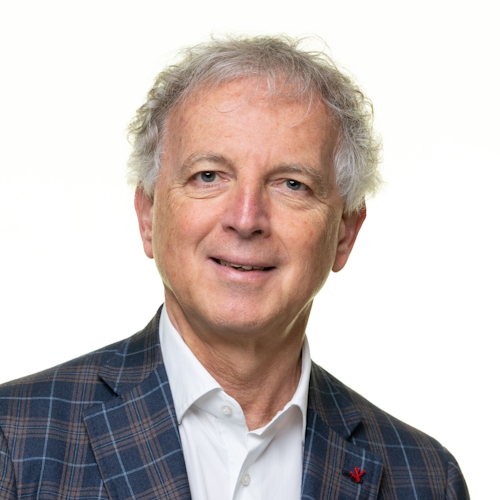
Luigi NaldiniSan Raffaele Telethon Institute for Gene Therapy (SR-Tiget) 
Luigi NaldiniSan Raffaele Telethon Institute for Gene Therapy (SR-Tiget) Luigi Naldini, M.D., Ph.D., is Professor of Cell and Tissue Biology and Gene and Cell Therapy at the San Raffaele University and Scientific Director of the San Raffaele Telethon Institute for Gene Therapy in Milan, Italy. He has pioneered the development and applications of lentiviral gene transfer vectors, one of the most widely used tool in biomedical research, which are providing safe and effective therapies for several diseases, some of which are now registered medicines. He contributed to the first demonstration of T-cell receptor gene editing and of targeted gene correction in human HSC and introduced hit-and-run epigenetic editing. Has published >300 papers (SCOPUS h-index 108), has been President of the European Society of Gene and Cell Therapy (ESGCT), received numerous awards including Outstanding Achievement Awards from the American Society of Gene and Cell Therapy (ASGCT) and from ESGCT, the Beutler Prize from the American Society of Hematology and the 2019 Jeantet-Collen Prize for Translational Medicine. He is also co-founder of the biotech start-ups Genenta (listed on Nasdaq), Chroma Medicine and Genespire. |
| 10:15-10:30 |
Q&A
|
Chair
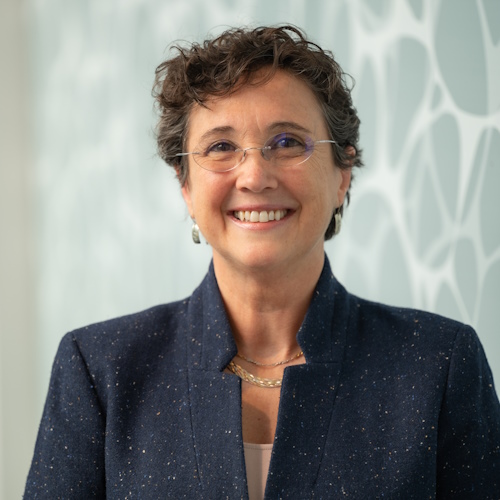
Laura Sepp-Lorenzino
Intellia Therapeutics

Laura Sepp-Lorenzino
Intellia Therapeutics
Laura Sepp-Lorenzino, Ph.D. joined Intellia Therapeutics in 2019 as Chief Scientific Officer and is responsible for Research and Early Development. Intellia is harnessing CRISPR-based technologies to revolutionize the future of medicine. Laura previously held leadership positions at Vertex, Alnylam and Merck. She serves on the Board of Directors of Taysha Gene Therapies and the Alliance for Regenerative Medicine, and on the Scientific Advisory Boards for Thermo Fisher Scientific, the U.K. Nucleic Acid Therapies and Arsenal Capital Partners. She received her professional degree in Biochemistry from the University of Buenos Aires, Argentina, and both her M.S. and Ph.D. in Biochemistry from New York University.
| 11:00-11:05 |
Introduction to Session 2

Laura Sepp-LorenzinoIntellia Therapeutics 
Laura Sepp-LorenzinoIntellia Therapeutics Laura Sepp-Lorenzino, Ph.D. joined Intellia Therapeutics in 2019 as Chief Scientific Officer and is responsible for Research and Early Development. Intellia is harnessing CRISPR-based technologies to revolutionize the future of medicine. Laura previously held leadership positions at Vertex, Alnylam and Merck. She serves on the Board of Directors of Taysha Gene Therapies and the Alliance for Regenerative Medicine, and on the Scientific Advisory Boards for Thermo Fisher Scientific, the U.K. Nucleic Acid Therapies and Arsenal Capital Partners. She received her professional degree in Biochemistry from the University of Buenos Aires, Argentina, and both her M.S. and Ph.D. in Biochemistry from New York University. |
|---|---|
| 11:05-11:20 |
Multiplexed CRISPR-based cell engineering to generate persistent allogeneic solutions and improved function in solid tumors
Cell therapies have shown great success in treating hematologic malignancies, but their widespread use has been limited by high cost and failures of autologous manufacturing and poor efficacy in solid tumors. To generate durable "off-the-shelf" allogeneic products with activity in immunosuppressive indications, multiple edits will likely be required; however, multiplex editing can cause concerns related to genotoxicity. To overcome these limitations, we developed a highly efficient multiplexed editing strategy combining CRISPR SpyCas9 cleavage for targeted integration of the CAR/TCR and Nme2Cas9 base editor for any additional knock out (KO) edits. A lipid nanoparticle platform was applied to maintain high cell viability and expansion. This strategy was deployed to generate allogeneic T cells avoiding host T and NK cell rejection and carrying further edits to improve activity in solid tumors. Engineered T cells showed high chromosomal integrity, early memory phenotype, high expansion, and functional activity in vitro and in vivo. 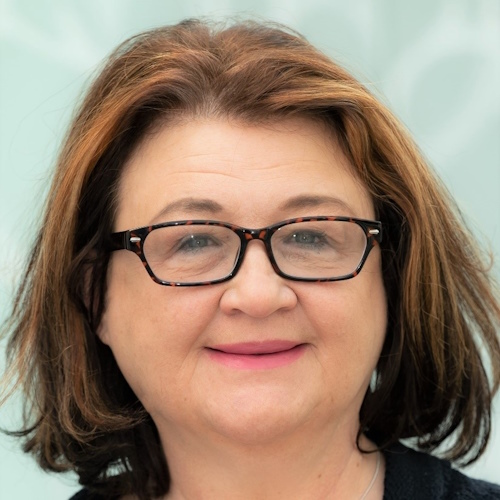
Dr Birgit SchultesIntellia Therapeutics 
Dr Birgit SchultesIntellia Therapeutics Dr. Birgit Schultes is the SVP, Head of Cell Therapy, at Intellia Therapeutics Inc. She brings over two decades’ experience in the biotechnology and pharmaceutical industry and leads a multidisciplinary cell therapy team focused on ex vivo applications of CRISPR/Cas9 since 2017 and acts as the Program Lead for a preclinical stage CAR-T cell for solid tumors. Her work is focused on CRISPR-engineered CAR-T and TCR-T cells as well as synthetic Tregs for immuno-oncology and autoimmunity indications, including allogeneic and solid tumor solutions. Prior to joining Intellia, Birgit served as a Senior Director at Unum Therapeutics (now Cogent Biosciences, Inc.), where she directed the preclinical efforts for Unum’s universal T cell programs. Earlier in her career, Birgit held a variety of translational research roles, working on different biologics for immuno-oncology and immunology applications at Momenta Pharmaceuticals, United Therapeutics and AltaRex Corp. Dr. Schultes holds a Ph.D. in Immunology and a M.S. in Cell Biology from the University of Bonn, Germany. |
| 11:20-11:35 |
Programming permanent gene repression by epigenetic editing
Epigenome editing is emerging as a powerful new strategy to silence gene expression without altering the primary DNA sequence. In this context, we and others have previously demonstrated that transient delivery of Engineered Transcriptional Repressors (ETRs) can result in efficient, long-term, stable, and specific epigenetic silencing of endogenous genes in both human and mouse cells, and more recently, in vivo in mice. ETRs are chimeric proteins consisting of a programmable DNA-binding domain, such as CRISPR-Cas9 or ZFPs, fused to one or more effector domains derived from naturally occurring epigenetic repressors. During my talk, I will present our efforts to refine and characterize this technology, focusing on its in vivo and ex vivo applications for the treatment of monogenic and acquired diseases. 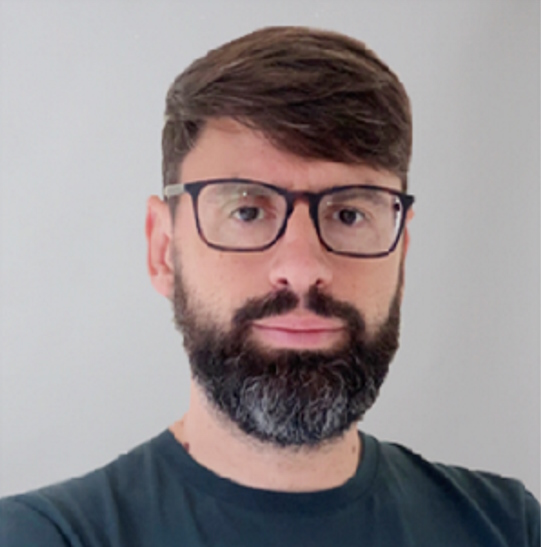
Professor Angelo LombardoSan Raffaele-Telethon Institute for Gene Therapy (SR-Tiget) & Vita-Salute San Raffaele University 
Professor Angelo LombardoSan Raffaele-Telethon Institute for Gene Therapy (SR-Tiget) & Vita-Salute San Raffaele University Angelo Lombardo is a Professor of Tissue Biology and Regenerative Medicine at Vita-Salute San Raffaele University (UniSR; Milan, IT) and a Group Leader at the San Raffaele-Telethon Institute for Gene Therapy (SR-Tiget; Milan, IT). He is also a co-founder of Chroma Medicine Inc. (Boston, MA, USA). His research focuses on the development and application of innovative gene therapy technologies, including genome and epigenome editing. Throughout his career, he has published over 40 articles in peer-reviewed journals, including Cell, Nature, Nature Biotechnology, and Nature Methods. He is an inventor on several patent applications related to his work and has received numerous prestigious international awards, including the Young Investigator Award and the Excellence in Research Award from the European Society of Gene and Cell Therapy. |
| 11:35-11:50 |
Delivery of genome editing tool kits in engineered lentivirus-derived particles
The invention of CRISPR/Cas gene editing tools offers hope for the development of drugs treating genetic defects directly in patients. However, delivering such tools to specific cells and organs remains a key challenge. Inspired by retroviruses' ability to carry integrase proteins into cell nuclei of infected cells, we engineered HIV-1-derived lentivirus-derived nanoparticles (LVNPs) to deliver transposases, designer nucleases, and RNA-guided endonucleases into cells. Recently, we demonstrated successful targeted DNA cleavage in cells treated with LVNPs loaded with SpCas9/guide RNA ribonucleoproteins (RNPs) and achieved gene editing via homology-directed repair, using reverse-transcribed DNA from co-packaged vector RNA as a template. The LVNP platform also supports base and prime editing, and pseudotyping enables cell-specific gene editing and adapted use in primary cells. Early in vivo evidence of LVNP-directed gene editing in the mouse retina fuels hope that LVNPs can be further developed and produced in large scale for therapeutic applications. 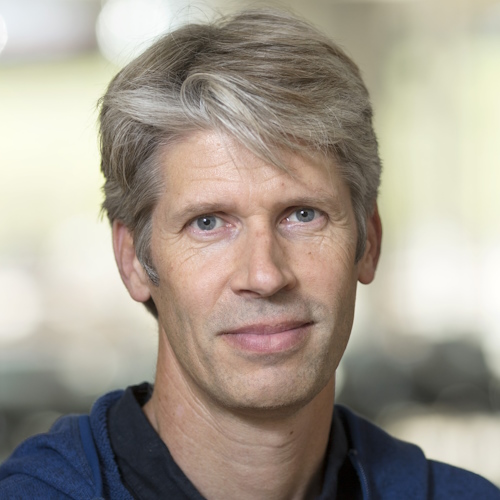
Professor Jacob Giehm MikkelsenAarhus University 
Professor Jacob Giehm MikkelsenAarhus University Jacob Giehm Mikkelsen is a professor in genetics and personalized medicine at the Department of Biomedicine, Aarhus University in Denmark. Jacob has >25 years of experience within genetic engineering and leads a research group with particular focus on technology development for genome editing as well as gene and protein delivery to cells and tissues. Jacob is a retrovirologist of training, and his group pioneered the development of engineered retroviruses for delivery of genome editing tool kits. Jacob has trained more than 70 students and postdocs and has a special interest in talent development in research. He is currently a member of the Danish Council on Ethics appointed by the Danish Parliament. |
| 11:50-12:05 |
Promise of AAV-mediated gene delivery as a disease-modifying therapy
The potential of recombinant adeno-associated viral vectors as a therapeutic modality for genetic diseases continues to show promise. There is demonstrable evidence of clinical efficacy and durability of effect that persists for multiple years following a single treatment in a growing number of indications. However, there are safety challenges with high doses indicating the need for more potent and tissue-tropic viral vectors. Host immune responses to the administered vector and expressed neo-transgene product require mitigation such as the tacit use of immunosuppressive regimens. Judicious selection of transgene expression cassette design is yet another important consideration for an optimal clinical outcome. Lessons learned are providing a clearer path to deploying this emerging technology platform for use in the next wave of diseases with particular emphasis on those with high unmet need. 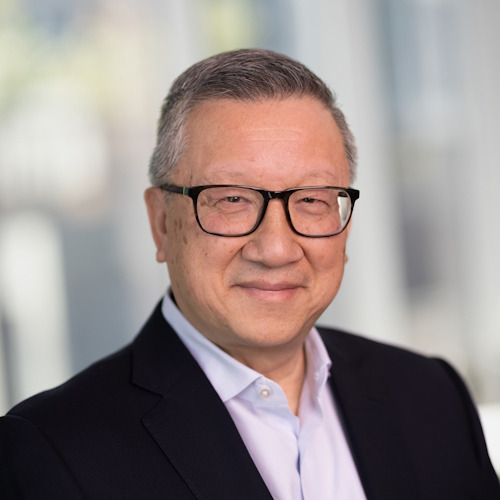
Dr Seng H. ChengAlexion, AstraZeneca Rare Disease 
Dr Seng H. ChengAlexion, AstraZeneca Rare Disease Seng H. Cheng, Ph.D., is Senior Vice President, Head of Research and Product Development of Alexion, AstraZeneca Rare Disease. He oversees drug discovery, process development and clinical supply as well as clinical biomarkers, bioanalytical discovery, diagnostics and bioinformatics, supporting Alexion’s pipeline from target discovery through post-marketing. Seng was previously Senior Vice President & Chief Scientific Officer of the Rare Disease Research Unit at Pfizer. Prior to Joining Pfizer, he held senior roles including Group Vice President of Genetic Diseases Science at Genzyme as well as the Global Head of Research of Rare Diseases at Sanofi. He has contributed to the development of several medicines for patients with rare diseases, co-authored over 280 research articles and reviews and is a co-inventor on 68 US patents. Seng holds a BSc and PhD in Biochemistry from the University of London and trained as a postdoctoral fellow in tumor biology at the National Institute of Medical Research, U.K. |
| 12:05-12:20 |
Lipid nanoparticles are enabling gene therapies
Lipid nanoparticles (LNPs) represent an advanced drug delivery system that is now enabling gene therapies. LNPs are critical to enabling the function of nucleic acids which are unable to access their target sites, the internal compartment of cells. The first-ever approved RNA interference therapeutic, Onpattro, was designed to deliver short interfering RNA to the liver to treat hereditary transthyretin amyloidosis. Further advancements of these systems through optimization of the LNP have enabled their use in the messenger RNA vaccines commercialized by Pfizer/BioNTech and Moderna. Most recently, LNPs have been applied to enable in vivo gene editing, protein replacement and to establish passive immunity. While substantial advancements have resulted in several medicines for liver diseases and vaccines, the critical barrier to treating or even curing disease is the ability to deliver nucleic acids to their target site in a precise manner to non-liver tissues. 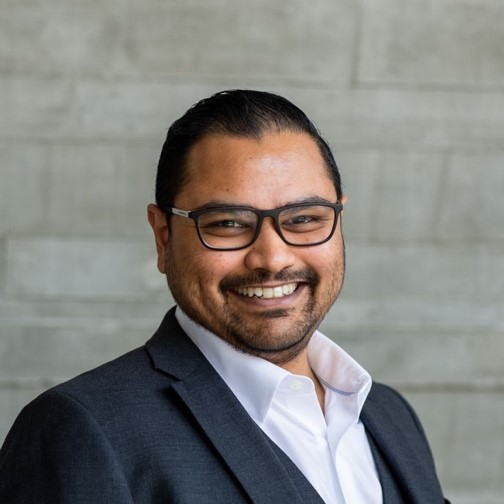
Dr Jayesh KulkarniNanoVation Therapeutics (NTx) 
Dr Jayesh KulkarniNanoVation Therapeutics (NTx) Dr. Kulkarni obtained his PhD from the University of British Columbia and has over 12 years of academic and industry experience in the nanoparticle drug delivery field. He has published over 40 peer-reviewed articles in prestigious journals and co-inventor on numerous patents. Dr. Kulkarni’s research has focused on the role of the various lipid components in LNP and the biophysics that governs particle formation. His work has contributed to clinical translation, including scale-up and manufacturing of LNP systems in accordance with GLP and GMP regulations. Dr. Kulkarni is a leader in the design and development of lipid nanoparticle (LNP) formulations of small molecule and nucleic acid therapeutics. He currently serves as the Chief Scientific Officer of NanoVation Therapeutics, an LNP-RNA formulation developer. |
| 12:25-12:40 |
Q&A
|
Chair
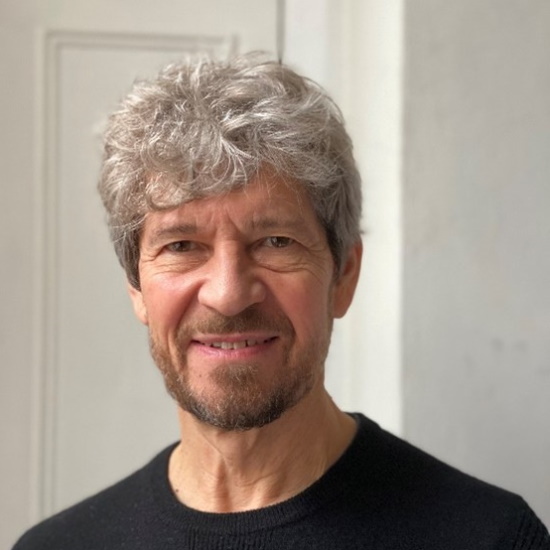
Professor Robin Lovell-Badge FRS
The Francis Crick Institute

Professor Robin Lovell-Badge FRS
The Francis Crick Institute
Robin Lovell-Badge obtained his PhD at University College London in 1978 and was a postdoc in Cambridge, both with Martin Evans. After an EMBO fellowship in Paris he established his independent laboratory in 1982 at the MRC Mammalian Development Unit, UCL, directed by Anne McLaren. In 1988 he moved to the MRC National Institute for Medical Research, which was incorporated into the Francis Crick Institute in 2015. In 1990, his lab discovered Sry, the Y-linked sex determining gene and the Sox gene family. Major themes of his past and current work include sex determination, development of the gonads, nervous system and pituitary, and the biology of stem cells within these systems. He is also very active in both public engagement and policy work. He has a strong interest in the prospects for applications of human genome editing and was on the organising committee for the three international Summits held on this, including as chair for the 2023 meeting.
| 13:45-13:50 |
Introduction to panel

Professor Robin Lovell-Badge FRSThe Francis Crick Institute 
Professor Robin Lovell-Badge FRSThe Francis Crick Institute Robin Lovell-Badge obtained his PhD at University College London in 1978 and was a postdoc in Cambridge, both with Martin Evans. After an EMBO fellowship in Paris he established his independent laboratory in 1982 at the MRC Mammalian Development Unit, UCL, directed by Anne McLaren. In 1988 he moved to the MRC National Institute for Medical Research, which was incorporated into the Francis Crick Institute in 2015. In 1990, his lab discovered Sry, the Y-linked sex determining gene and the Sox gene family. Major themes of his past and current work include sex determination, development of the gonads, nervous system and pituitary, and the biology of stem cells within these systems. He is also very active in both public engagement and policy work. He has a strong interest in the prospects for applications of human genome editing and was on the organising committee for the three international Summits held on this, including as chair for the 2023 meeting. |
|---|---|
| 13:50-15:00 |
Panellists
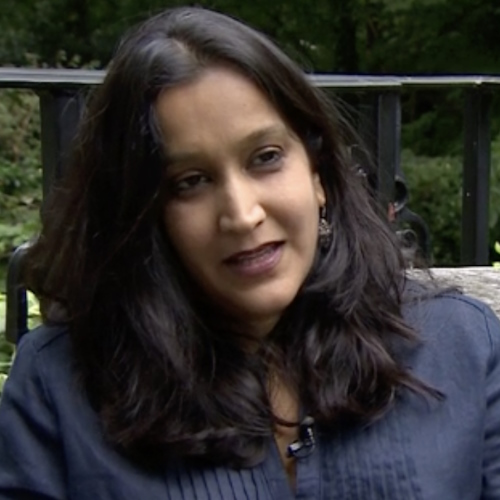
Sharmila NikapotaCure EB Founder Trustee 
Sharmila NikapotaCure EB Founder Trustee Sharmila is the founder of Cure EB (formerly Sohana Research Fund) and Sohana’s mother. She graduated from Cambridge University with a degree in veterinary medicine in 1994 and worked in general practice gaining a certificate in veterinary radiology. She stopped work soon after Sohana was born. The chronic underfunding of EB medical research led to setting up a dedicated research fund which became Cure EB. She is the driving force behind Cure EB, planning fundraising events and challenges, research disseminations events such as webinars and meetings and speaking at events, but most importantly building up the research portfolio. Increasingly she is concentrating on maximising research progress by building collaborations between researchers, other funding bodies and relationships with biotech to realise the ultimate aim–to #cureEB. She has three other daughters and a dog. “Watching Sohana suffer the agonising pain of EB everyday is the best incentive to push forward research to find a treatment for all” 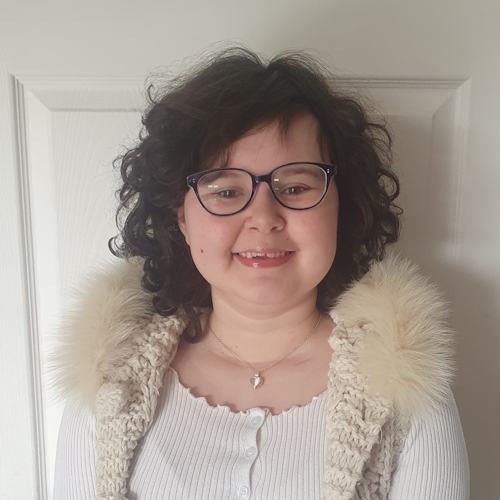
AlyssaGreat Ormond Street Hospital Patient 
AlyssaGreat Ormond Street Hospital Patient My name is Alyssa. I am 15 and am currently studying for my GCSEs. When I was 12 I was diagnosed with T-Cell Acute Lymphoblastic Leukemia. A few weeks later we found out that it wasn’t working as well as hoped so I went onto have a bone marrow transplant which also failed. After that my cancer was diagnosed as terminal. However my consultant found a new trial in Great Ormond Street Hospital, I met all of the requirements and was the first person in the world to receive this amazing new treatment. It used T-Cell editing to kill the cancerous cells and it worked! After getting a second chance in life I love spending time with my family and our Labrador Holly as well as riding my bike and enjoying life as much as possible and love working with charities to help them raise more money for life-saving research. 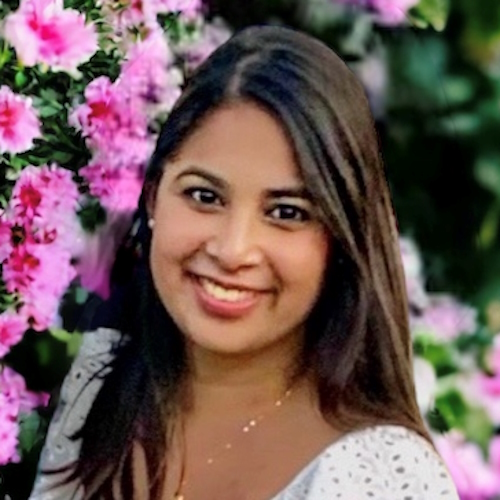
Roanna MaharajPPV Thalassaemia Representative 
Roanna MaharajPPV Thalassaemia Representative Roanna Maharaj, who lives with thalassemia, is a dedicated patient advocate emphasising the importance of incorporating the patient's voice throughout the continuum of care, from preventive measures to curative therapies. She is deeply passionate about education and tackling the health disparities faced by the thalassemia and rare disease communities. With a commitment to empowering patients and families globally, Roanna has developed innovative tools to enhance communication and strengthen the patient-healthcare professional relationship. Her experience includes serving as Vice Chair of the UK Thalassaemia Society, where she led initiatives in Public Health, Education, and Patient Advocacy for over 20 years. Roanna has represented the thalassaemia community on various health committees and boards, including the National Haemoglobinopathy Panel and the Clinical Reference Group for haemoglobinopathies. She holds a Bachelor of Science in Psychology and a Master of Science in Health Psychology, and is currently pursuing a PhD in this field. |
Chair
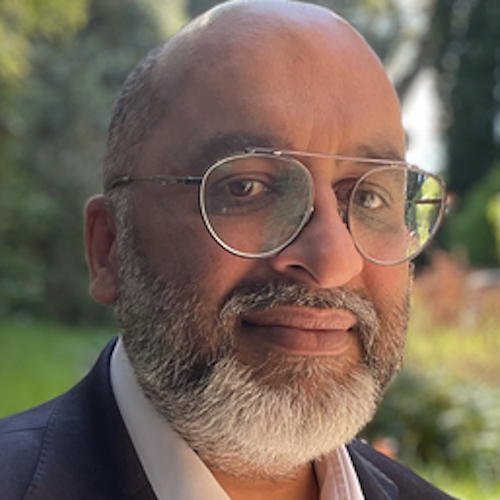
Professor Waseem Qasim
UCL Great Ormond Street Institute of Child Health

Professor Waseem Qasim
UCL Great Ormond Street Institute of Child Health
Waseem Qasim is Professor of Cell and Gene Therapy at UCL Great Ormond Street (GOS) Institute of Child Health in London. He has led ‘bench-to-bedside’ development of new treatments that use emerging genome editing strategies to reprogram immune cells to treat cancers. Clinical studies at GOS were the first to show the potential of donor T cell modified, initially using TALENs and then CRISPR/Cas9 and, most recently, ‘base editing’ technology. Similar approaches are now being developed to repair genes inside living cells to help children with inherited blood or immune disorders, and these developments are setting the scene for a new generation of genetic medicines.
| 15:30-15:35 |
Introduction to session 3

Professor Waseem QasimUCL Great Ormond Street Institute of Child Health 
Professor Waseem QasimUCL Great Ormond Street Institute of Child Health Waseem Qasim is Professor of Cell and Gene Therapy at UCL Great Ormond Street (GOS) Institute of Child Health in London. He has led ‘bench-to-bedside’ development of new treatments that use emerging genome editing strategies to reprogram immune cells to treat cancers. Clinical studies at GOS were the first to show the potential of donor T cell modified, initially using TALENs and then CRISPR/Cas9 and, most recently, ‘base editing’ technology. Similar approaches are now being developed to repair genes inside living cells to help children with inherited blood or immune disorders, and these developments are setting the scene for a new generation of genetic medicines. |
|---|---|
| 15:35-15:55 |
Precise gene correction for Primary Immunodeficiency Diseases
Inborn errors of immunity (IEIs) are monogenic disorders of immunity that causes significant morbidity or early mortality. Hematopoietic stem cell transplant can be life-saving but are limited by graft rejection, graft failure, graft-versus-host disease or a lack of suitably HLA-matched donors. Gene therapy using a patient’s own stem cells could mitigate these problems. The earliest stem cell gene therapy clinical trials using oncoretroviral vectors to insert therapeutic transgenes inadvertently activated nearby oncogenes and caused leukemias. Improved lentivectors used currently integrate in actively transcribed genes and can cause aberrant fusion transcripts. Next-gen targeted gene editing tools like base editing provides precision and efficacy that should address random integration concerns and importantly, restores physiological gene expression. Preclinical base editing studies of a CYBB mutation in patient HSPCs confirming highly specific and efficient mutation repair supported our clinical gene therapy trial using BE HSPCs for treatment of Chronic Granulomatous Disease. Our goal is to provide efficacy and safety data from treated patients to support extending the approach to other IEIs. 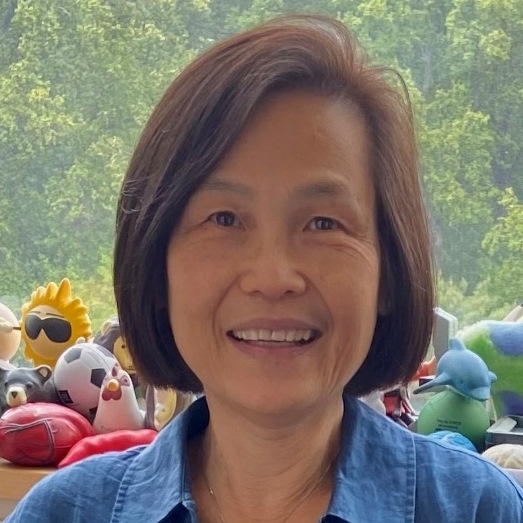
Suk See De RavinNational Institutes of Health 
Suk See De RavinNational Institutes of Health Suk See De Ravin is a Senior Research Physician at the National Institutes of Allergy and Infectious Diseases (NIAID), National Institutes of Health. She received her paediatric training at Sydney Children’s Hospital, Australia, and after completion of her PhD in Primary Immunodeficiency Diseases (PID), joined Laboratory of Host Defences at NIAID to continue work on novel gene and cell therapies of PID. She has been working on haematopoietic stem cell gene therapy for X-linked Severe Combined Immunodeficiency and Chronic Granulomatous Disease. Current lentivector gene therapy is helpful for many patients with PID but random vector insertions and lack of gene regulation remain important concerns. Using state-of-art functional gene correction strategies, she has applied base-editing to precisely repair CGD and XSCID-causing mutations, a precise medicine that will improve safety and efficacy of gene therapy that will hopefully be expanded into treatment of the broader range of PIDs. |
| 15:55-16:15 |
Hacking T cells to fight leukaemia
Most patients with leukaemia can be successfully treated with chemotherapy, but if the disease relapses and becomes ‘hard-to-treat’, we can now offer alternative approaches that harness powerful immune effects. T-cells, a critical group of white blood cells that protect us from infections, can be collected and reprogrammed to hunt down and eradicate certain types of blood cancer. Recently, genome editing technologies, including CRISRP/Cas9 and Base editing, have been used to simultaneously ‘hack’ multiple genes in T cells from healthy donors so that they can be pre-manufactured and used to treat different types of leukaemia without the need for any matching. These evolving gene-edited medicines offer powerful new therapies that are being tested in carefully designed clinical trials in children and adults. 
Professor Waseem QasimUCL Great Ormond Street Institute of Child Health 
Professor Waseem QasimUCL Great Ormond Street Institute of Child Health Waseem Qasim is Professor of Cell and Gene Therapy at UCL Great Ormond Street (GOS) Institute of Child Health in London. He has led ‘bench-to-bedside’ development of new treatments that use emerging genome editing strategies to reprogram immune cells to treat cancers. Clinical studies at GOS were the first to show the potential of donor T cell modified, initially using TALENs and then CRISPR/Cas9 and, most recently, ‘base editing’ technology. Similar approaches are now being developed to repair genes inside living cells to help children with inherited blood or immune disorders, and these developments are setting the scene for a new generation of genetic medicines. |
| 16:15-16:35 |
Therapeutic gene editing for cardiovascular and metabolic diseases: from the leading cause of death to N-of-1 disorders
Inborn errors of metabolism (IEMs) are rare, devastating disorders arising from pathogenic variants in genes encoding enzymes of key biochemical pathways. The liver plays an important role in the pathogenesis of over 150 IEMs, often failing to metabolize a toxic metabolite that can injure secondary organs, such as brain. Liver transplantation is sometimes employed; however, its utility is limited by scarcity of donors and lifelong risk of post-transplant complications. We aim to establish a protocol for the rapid development of personalized, liver-directed editing therapies for hepatic IEMs. We envision a platform regulatory framework where IND-enabling studies for a “leader” hepatic IEM editing therapy also support programs for varied “follower” indications. The leader and follower therapies will differ only in patient-variant-specific guide RNA sequences. A platform regulatory approach is essential to develop therapies in time to meaningfully improve outcomes in this patient cohort who suffer significant early morbidity and mortality. 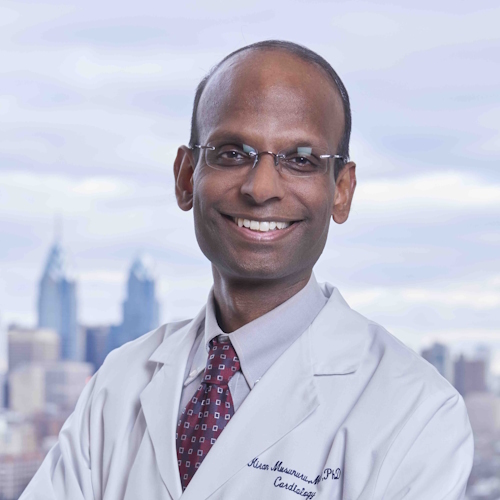
Professor Kiran MusunuruUniversity of Pennsylvania 
Professor Kiran MusunuruUniversity of Pennsylvania An actively practicing cardiologist and committed teacher, Dr. Kiran Musunuru is Professor of Cardiovascular Medicine and Genetics in the Perelman School of Medicine at the University of Pennsylvania. His research focuses on the development of gene editing therapies for cardiovascular and metabolic diseases. He is a recipient of the Presidential Early Career Award for Scientists and Engineers from the White House, the American Heart Association’s Award of Meritorious Achievement and Joseph A. Vita Award, the American Philosophical Society’s Judson Daland Prize for Outstanding Achievement in Clinical Investigation, the American Federation for Medical Research’s Outstanding Investigator Award, Harvard University's Fannie Cox Prize for Excellence in Science Teaching, and the University of Pennsylvania's Jane M. Glick Graduate Teaching Award. He is author of The CRISPR Generation: The Story of the World's First Gene-Edited Babies and Genome Editing: A Practical Guide to Research and Clinical Applications. He is a co-founder of Verve Therapeutics. |
| 16:35-16:50 |
Q&A
|
Chair

Laura Sepp-Lorenzino
Intellia Therapeutics

Laura Sepp-Lorenzino
Intellia Therapeutics
Laura Sepp-Lorenzino, Ph.D. joined Intellia Therapeutics in 2019 as Chief Scientific Officer and is responsible for Research and Early Development. Intellia is harnessing CRISPR-based technologies to revolutionize the future of medicine. Laura previously held leadership positions at Vertex, Alnylam and Merck. She serves on the Board of Directors of Taysha Gene Therapies and the Alliance for Regenerative Medicine, and on the Scientific Advisory Boards for Thermo Fisher Scientific, the U.K. Nucleic Acid Therapies and Arsenal Capital Partners. She received her professional degree in Biochemistry from the University of Buenos Aires, Argentina, and both her M.S. and Ph.D. in Biochemistry from New York University.
| 09:00-09:05 |
Welcome and opening remarks
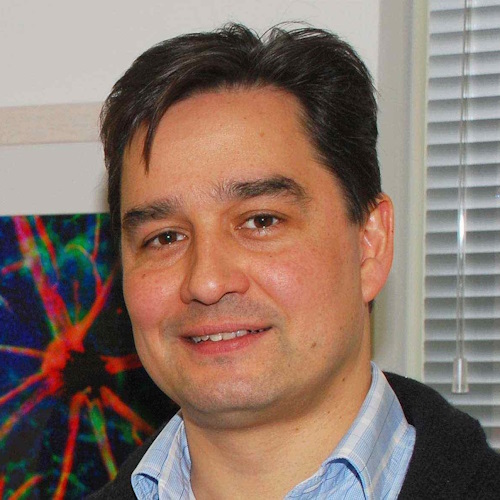
Professor Robin AliKing's College London 
Professor Robin AliKing's College London Professor Robin Ali is Professor of Human Molecular Genetics at King’s College London and Director of KCL Centre for Gene Therapy and Regenerative Medicine. He is also Director of the KCL Gene Therapy Vector Facility. Robin is a Fellow of the Academy of Medical Sciences, NIHR Senior Investigator (Emeritus) and a recent past President of the European Society of Gene & Cell Therapy. The focus of his research is the development of gene and cell therapy for the treatment of retinal disorders; he is a founder and former Chief Scientific Officer of MeiraGTx PLC, a Nasdaq-listed clinical-stage gene therapy company. Robin Ali and members of his team have received numerous prizes for their work on developing new treatments for retinal degeneration, including the €1M Champalimaud Vison Award. Robin has published over 200 peer-reviewed papers with landmark papers and preclinical therapeutic proof-of-concept studies for many different ocular disorders. As chief investigator, he established the world’s first clinical trial of gene therapy for retinopathy and his group is now developing a first-in-human clinical trial of transplantation of ES-derived cone photoreceptors for the treatment of macular degeneration. |
|---|---|
| 09:05-09:25 |
CRISPR Cures For All: an Actionable Path
Gene editing, a Nobel-prize winning technology for repairing genetic changes that cause disease, is the basis of a medicine for sickle cell disease. This landmark achievement raises the question: can gene editing be used for thousands of other severe diseases caused by single mutations? In a research lab the answer is a firm "yes" - but what about in the clinic? A path to "CRISPR Cures For All" exists. Making it real will take innovation and courage. 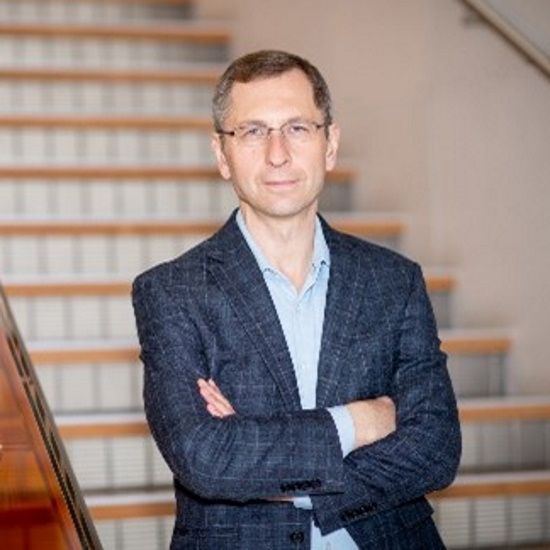
Fyodor UrnovUniversity of California, Berkeley 
Fyodor UrnovUniversity of California, Berkeley Fyodor Urnov is a Professor of Molecular Therapeutics at UC Berkeley and a Scientific Director at its Innovative Genomics Institute (IGI). He co-developed the toolbox of human genome and epigenome editing, co-named genome editing, and was on the team that advanced all of its first-in-human applications to the clinic. He also led the effort that identified the genome editing target for an approved medicine to treat sickle cell disease and beta-thalassemia. A major goal for the field of genome editing and a key focus of Fyodor's work is expanding access to CRISPR therapies for genetic disease. As part of that effort Fyodor directs the Danaher-IGI Beacon for CRISPR Cures - a first-in-class academia-industry partnership developing and advancing to the clinic scalable CRISPR-based approaches to treat diseases of the immune system. |
| 09:25-09:30 |
Q&A
|
Chair

Professor Robin Ali
King's College London

Professor Robin Ali
King's College London
Professor Robin Ali is Professor of Human Molecular Genetics at King’s College London and Director of KCL Centre for Gene Therapy and Regenerative Medicine. He is also Director of the KCL Gene Therapy Vector Facility. Robin is a Fellow of the Academy of Medical Sciences, NIHR Senior Investigator (Emeritus) and a recent past President of the European Society of Gene & Cell Therapy. The focus of his research is the development of gene and cell therapy for the treatment of retinal disorders; he is a founder and former Chief Scientific Officer of MeiraGTx PLC, a Nasdaq-listed clinical-stage gene therapy company. Robin Ali and members of his team have received numerous prizes for their work on developing new treatments for retinal degeneration, including the €1M Champalimaud Vison Award.
Robin has published over 200 peer-reviewed papers with landmark papers and preclinical therapeutic proof-of-concept studies for many different ocular disorders. As chief investigator, he established the world’s first clinical trial of gene therapy for retinopathy and his group is now developing a first-in-human clinical trial of transplantation of ES-derived cone photoreceptors for the treatment of macular degeneration.
| 09:30-09:35 |
Introduction to session 1

Professor Robin AliKing's College London 
Professor Robin AliKing's College London Professor Robin Ali is Professor of Human Molecular Genetics at King’s College London and Director of KCL Centre for Gene Therapy and Regenerative Medicine. He is also Director of the KCL Gene Therapy Vector Facility. Robin is a Fellow of the Academy of Medical Sciences, NIHR Senior Investigator (Emeritus) and a recent past President of the European Society of Gene & Cell Therapy. The focus of his research is the development of gene and cell therapy for the treatment of retinal disorders; he is a founder and former Chief Scientific Officer of MeiraGTx PLC, a Nasdaq-listed clinical-stage gene therapy company. Robin Ali and members of his team have received numerous prizes for their work on developing new treatments for retinal degeneration, including the €1M Champalimaud Vison Award. Robin has published over 200 peer-reviewed papers with landmark papers and preclinical therapeutic proof-of-concept studies for many different ocular disorders. As chief investigator, he established the world’s first clinical trial of gene therapy for retinopathy and his group is now developing a first-in-human clinical trial of transplantation of ES-derived cone photoreceptors for the treatment of macular degeneration. |
|---|---|
| 09:35-09:55 |
Innovation and challenges in CMC (Chemistry, Manufacturing and Controls) with new technology platforms – The gene and cell therapy case
Cell and gene therapies have revolutionized the treatment of various diseases, especially genetic disorders and certain cancers. Compared to traditional therapies, they offer targeted treatment by addressing diseases at the genetic level, long-lasting effects, personalization using the patient's own cells, and the potential to treat previously untreatable conditions. Traditional therapies such as small molecules and biologics, have well-defined CMC deliverables, well-established manufacturing processes and cost structures, allowing for predictable production scales and pricing. Cell and gene therapies often involve complex and individualized manufacturing processes that can lead to significant variability in yield, production timelines and costs. Cell and gene therapies also face unique challenges in scalability, quality controls, regulatory compliance, and supply chain logistics. Innovating manufacturing solutions, such as automation, standardization and advanced bioprocessing technologies, is essential. Continued investment in manufacturing capabilities and cost-effective strategies is crucial for integrating these groundbreaking therapies into standard healthcare practices. 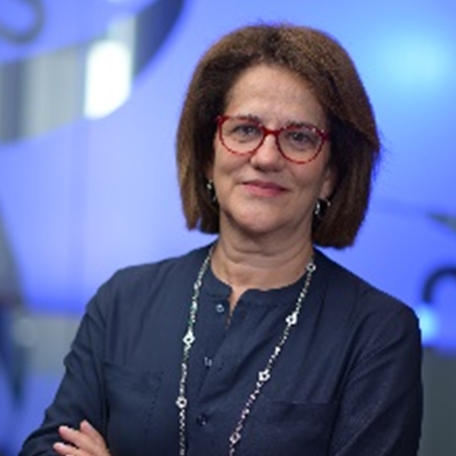
Dafni BikaAstraZeneca 
Dafni BikaAstraZeneca Dafni is a Pharmaceutical Executive with 30 years of experience in Product Development and Manufacturing Science and Technology. She is currently SVP and Global Head of Pharmaceutical Technology and Development (PT&D) in Astrazeneca’s Global Operations. She leads a global, integrated network of scientists and engineers (1500+) in 8 countries, who transform synthetic molecules into medicines and secure approval and robust supply across the product life cycle. Prior to AstraZeneca Dafni led the Manufacturing Science and Technology organization in Bristol-Myers Squibb in New Brunswick, NJ, and spent 10 years with MERCK’s Global Pharmaceutical Commercialization in West Point, PA. She began her career at Procter & Gamble’s European Technical Center in Brussels, Belgium. She holds a Ph.D. in Materials Science and Engineering from the University of Pennsylvania, a Master of Science in Materials Science and Engineering from the University of Rochester, NY, and a Diploma in Chemical Engineering from the National Technical University of Athens, Greece. |
| 09:55-10:15 |
Commercialising advanced cell & gene therapies - Challenges and opportunities
Commercialising Advanced Cell & Gene Therapy (ACGT) products poses several additional challenges for manufacturers. While these personalised therapies offer transformational outcomes, they are also more complex to deliver and often require new systems to be put in place, e.g. cold chain logistics, cell orchestration and scheduling platforms for autologous CART therapies. Improvements in the training and communication of the CAR T work force are essential for the delivery of CAR T therapy. Patient management will increasingly be shared by different healthcare providers and new patient pathways are therefore needed to identify and refer of patients to treatment centres. ACGT products require long-term real world evidence collection through registries for safety and this may afford an opportunity to collect data for other purposes, e.g. establishing fair value. Expansion of existing capabilities like apheresis is required and has significantly lagged demand. Where-ever possible, simplified and standardised processes should be followed, taking into account that manufacturers must operate globally. Like other products with transformational outcomes, these therapies typically have accelerated approval based upon single-arm studies. This leads to greater uncertainty in appraising value and price, which is further exacerbated by most being one-time administered products. The NHS, as a single national provider of healthcare, has a significant advantage in addressing some of these challenges. Collaboration with all stakeholders, including industry, will be the key. An example of where this has worked well is the Advanced Therapy Treatment Centre (ATTC) network. 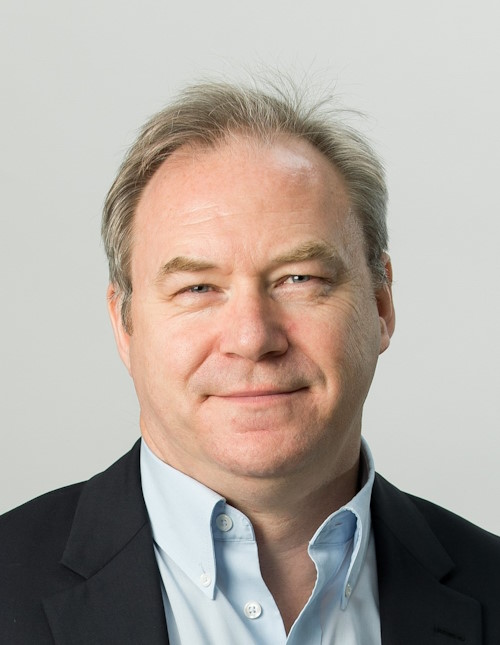
Christopher VannAutolus Ltd 
Christopher VannAutolus Ltd Mr. Vann leads the commercial activities for Autolus. An industry veteran with 30 years of experience in both development and business roles, he joined Autolus from Hoffmann-La Roche’s Swiss headquarters, where he was latterly responsible for leading the lung cancer commercial team and general management of the Tarceva brand. He has extensive experience in global lifecycle management of oncology products as well as implementing marketing strategy at a regional and national level. This includes launching several oncology, immunology, and transplant products in countries including China, Japan, Romania, Russia, South Africa, the UK, and the U.S. He gained his degree in Toxicology and Pharmacology from the School of Pharmacy, University of London. |
| 10:15-10:35 |
Overcoming manufacturing and regulatory challenges in multicomponent gene editing technologies
Gene editing technologies present unique and complex manufacturing challenges. As multicomponent products, gene editing therapies require the precise integration of multiple biological elements, such as guide RNAs, nucleases, and delivery systems, each of which must meet stringent quality and safety standards. This complexity intensifies the difficulty of manufacturing these therapies, especially at small scales. The lack of appropriate small-scale manufacturing solutions creates a critical bottleneck, leading to inefficiencies, higher costs, and longer development timelines. This presentation will explore the dual challenges of manufacturing and regulation in gene editing, with a focus on the multicomponent nature of these products and the urgent need for new technologies and regulatory pathways. Addressing these issues is essential to unlocking the full potential of gene editing and accelerating the development of life-changing therapies. 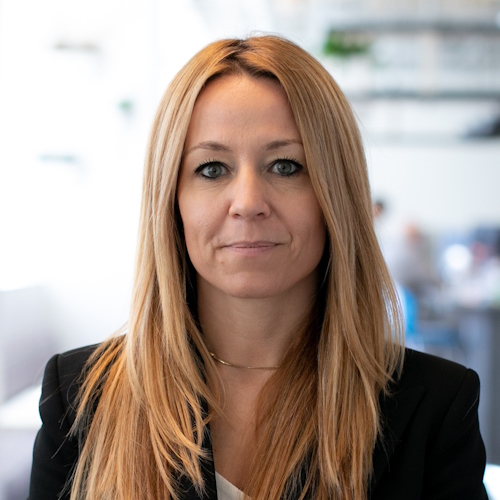
Vanessa Almendro NavarroDanaher 
Vanessa Almendro NavarroDanaher Vanessa Almendro, Ph.D, MBA, is Vice President of Science and Technology, Head of Innovation at Danaher Corporation, leading multiple initiatives to position Danaher at the forefront of innovation in science, technology, and medicine. Vanessa is also the Founder and Principal for the Brain Cancer Investment Fund, a philanthropic fund aiming at catalyzing the development of cures for brain cancer. Prior to Danaher, Vanessa was the Head of External Strategy and Innovation at the Eisai Center for Genetics Guided Dementia Discovery (G2D2). In this role, Vanessa led the creation of the Eisai Innovation Center Biolabs, the first incubator space specialized in neurology. She also led the development of academic affairs and external innovation strategies in concert with academic investigators, consortiums, biotech, and large pharmaceutical companies. Prior to this role, Vanessa worked as Head of Strategy and Operations for Cogen Immune Medicines, and she held multiple leadership roles at Vertex Pharmaceuticals both in the R&D and Commercial organizations. Prior to industry Vanessa was a Research fellow at the Dana-Farber Cancer Institute, Harvard Medical School and prior to that served as a Group Leader in the Department of Medical Oncology at IDIBAPS in Barcelona, Spain. Vanessa is a Ph.D. in Biochemistry and Molecular Biology from University of Barcelona, a Post-doc in Translational Medicine from the Dana Farber Cancer Institute, Harvard Medical School, and an Executive MBA from MIT-Sloan. She is a mentor for start-up companies at MassConnect, Nucleate Boston Activator, and a member of the Commercial Advisory Board for the School of Biomedical Engineering at UBC. |
| 10:35-10:50 |
Q&A
|
Chair

Professor Robin Lovell-Badge FRS
The Francis Crick Institute

Professor Robin Lovell-Badge FRS
The Francis Crick Institute
Robin Lovell-Badge obtained his PhD at University College London in 1978 and was a postdoc in Cambridge, both with Martin Evans. After an EMBO fellowship in Paris he established his independent laboratory in 1982 at the MRC Mammalian Development Unit, UCL, directed by Anne McLaren. In 1988 he moved to the MRC National Institute for Medical Research, which was incorporated into the Francis Crick Institute in 2015. In 1990, his lab discovered Sry, the Y-linked sex determining gene and the Sox gene family. Major themes of his past and current work include sex determination, development of the gonads, nervous system and pituitary, and the biology of stem cells within these systems. He is also very active in both public engagement and policy work. He has a strong interest in the prospects for applications of human genome editing and was on the organising committee for the three international Summits held on this, including as chair for the 2023 meeting.
| 11:20-11:25 |
Introduction to session 2

Professor Robin Lovell-Badge FRSThe Francis Crick Institute 
Professor Robin Lovell-Badge FRSThe Francis Crick Institute Robin Lovell-Badge obtained his PhD at University College London in 1978 and was a postdoc in Cambridge, both with Martin Evans. After an EMBO fellowship in Paris he established his independent laboratory in 1982 at the MRC Mammalian Development Unit, UCL, directed by Anne McLaren. In 1988 he moved to the MRC National Institute for Medical Research, which was incorporated into the Francis Crick Institute in 2015. In 1990, his lab discovered Sry, the Y-linked sex determining gene and the Sox gene family. Major themes of his past and current work include sex determination, development of the gonads, nervous system and pituitary, and the biology of stem cells within these systems. He is also very active in both public engagement and policy work. He has a strong interest in the prospects for applications of human genome editing and was on the organising committee for the three international Summits held on this, including as chair for the 2023 meeting. |
|---|---|
| 11:25-11:45 |
Cell and Genetic therapies: global regulatory strategies and lessons learned
Vertex invests in scientific innovation to create transformative medicines for people with serious diseases with a focus on specialty markets. Cell and genetic therapies require a different approach to drug development including robust data packages and early and often engagement with regulators. This presentation will review global regulatory strategies and lessons learned on the journey to approval. 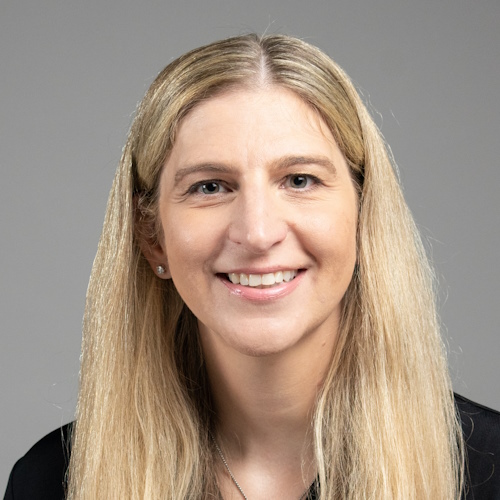
Stephanie KrogmeierVertex Pharmaceuticals 
Stephanie KrogmeierVertex Pharmaceuticals Stephanie Krogmeier is the head of Global Regulatory Affairs for Cell and Genetic Therapies at Vertex Pharmaceuticals and has been with Vertex for 19 years. Stephanie earned a Ph.D. in Pharmaceutical Chemistry from the University of Kansas. Stephanie began her career at Vertex in Formulation Development before transitioning to Global Regulatory Affairs CMC. Stephanie has led the CMC preparation of multiple marketing applications which have included Quality by Design strategies, continuous manufacturing processes, and real time release testing strategies. Most recently she led the cross functional submission and approval of Casgevy one-time, autologous CRISPR-edit cellular treatment for sickle cell disease and transfusion dependent beta thalassemia in multiple regions including the US, EU, UK, and KSA. Prior to her current role, Stephanie held multiple leadership positions at Vertex including project leader for the hemoglobinopathies project team and Disease Area Executive for the Hemoglobinopathies Disease Strategy Team. |
| 11:45-12:05 |
Ensuring safety in genome editing: Innovations in detecting and mitigating off-target effects
In recent years, several gene- and base-editing approaches have been developed for the treatment of congenital and acquired diseases. Some of these have been successfully translated into the clinic, and the first CRISPR-based drug has been approved. Before gene-edited products can be administered to patients, it is essential to thoroughly evaluate the genome of the edited cells, as genome editing carries risks of unintended off-target effects and significant on-target aberrations. This presentation will review the methods used to assess off-target effects, with a focus on CAST-Seq, an assay we have developed to detect both on- and off-target effects, including chromosomal rearrangements, in clinically relevant cell types ex vivo and in vivo. I will show how detailed analysis of collateral damage in cells edited with CRISPR-Cas nucleases, nickases or base editors has provided insights into the underlying mechanisms. Lastly, I will discuss strategies to reduce the risk of genotoxicity and improve the safety of these emerging therapeutic approaches. 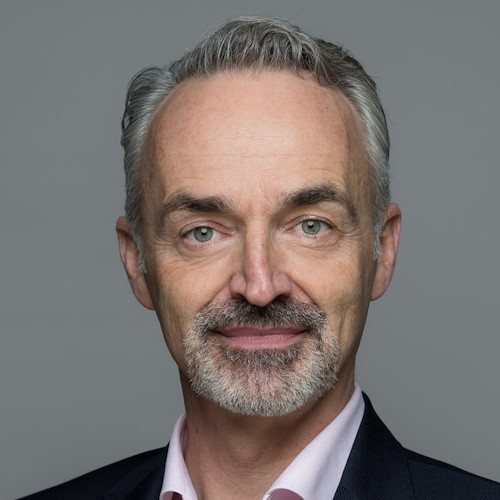
Professor Toni CathomenUniversity of Freiburg 
Professor Toni CathomenUniversity of Freiburg Toni Cathomen is a Professor of Cell and Gene Therapy at the University of Freiburg, Germany, and serves as the Director of the Institute for Transfusion Medicine and Gene Therapy at the University Medical Center. He received his Ph.D. from the University of Zurich, Switzerland. Previously, Dr. Cathomen held positions at the Salk Institute in San Diego, California, the Charité Medical School in Berlin, Germany, and the Hannover Medical School in Germany. Dr. Cathomen's research focuses on the development of immune cell therapies and hematopoietic stem cell preparations through genome editing. His work aims to provide innovative treatments for patients with primary immunodeficiencies, HIV infection, and certain cancers. He has also helped advance the safety of gene therapy by pioneering methods to assess the genotoxic risk of gene editors and gene-edited cell products. |
| 12:05-12:25 |
Precision medicine and HTA: An overview of the barriers and solutions in evaluating Advanced Therapy Medicinal Products (ATMPs)
The number of ATMPs being assessed by NICE is likely to increase in the coming years. This presentation will provide an overview of the experience NICE has had to date with ATMPs and the crucial role the organisation plays in assessing the clinical and cost-effectiveness of these technologies. 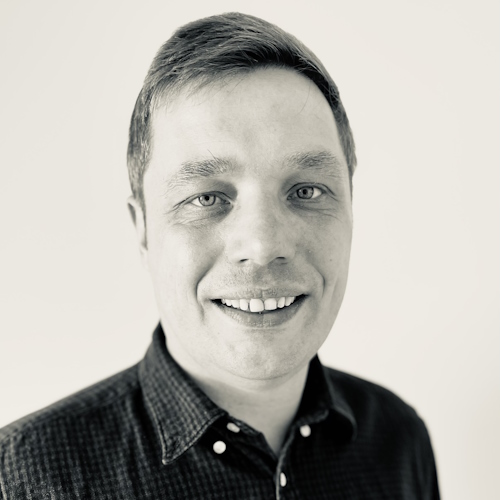
John SpoorsNICE 
John SpoorsNICE John is responsible for the delivery of the commercial and managed access function within the Centre for Health Technology Evaluation. The role involves developing the strategy and directing the work of the team that engages with NHS England, the Department of Health and the life science industry on patient access schemes and commercial and managed access arrangements for the NHS. John previously worked at the Medicines Policy Analysis Team (MPAT) at NHS England where he supported a number of commercial policy areas including horizon scanning, Advanced Therapy Medicinal Products (ATMPs) and managed access. |
| 12:25-12:40 |
Q&A
|
Chair

Professor Robin Ali
King's College London

Professor Robin Ali
King's College London
Professor Robin Ali is Professor of Human Molecular Genetics at King’s College London and Director of KCL Centre for Gene Therapy and Regenerative Medicine. He is also Director of the KCL Gene Therapy Vector Facility. Robin is a Fellow of the Academy of Medical Sciences, NIHR Senior Investigator (Emeritus) and a recent past President of the European Society of Gene & Cell Therapy. The focus of his research is the development of gene and cell therapy for the treatment of retinal disorders; he is a founder and former Chief Scientific Officer of MeiraGTx PLC, a Nasdaq-listed clinical-stage gene therapy company. Robin Ali and members of his team have received numerous prizes for their work on developing new treatments for retinal degeneration, including the €1M Champalimaud Vison Award.
Robin has published over 200 peer-reviewed papers with landmark papers and preclinical therapeutic proof-of-concept studies for many different ocular disorders. As chief investigator, he established the world’s first clinical trial of gene therapy for retinopathy and his group is now developing a first-in-human clinical trial of transplantation of ES-derived cone photoreceptors for the treatment of macular degeneration.
| 13:40-13:45 |
Introduction to session 3

Professor Robin AliKing's College London 
Professor Robin AliKing's College London Professor Robin Ali is Professor of Human Molecular Genetics at King’s College London and Director of KCL Centre for Gene Therapy and Regenerative Medicine. He is also Director of the KCL Gene Therapy Vector Facility. Robin is a Fellow of the Academy of Medical Sciences, NIHR Senior Investigator (Emeritus) and a recent past President of the European Society of Gene & Cell Therapy. The focus of his research is the development of gene and cell therapy for the treatment of retinal disorders; he is a founder and former Chief Scientific Officer of MeiraGTx PLC, a Nasdaq-listed clinical-stage gene therapy company. Robin Ali and members of his team have received numerous prizes for their work on developing new treatments for retinal degeneration, including the €1M Champalimaud Vison Award. Robin has published over 200 peer-reviewed papers with landmark papers and preclinical therapeutic proof-of-concept studies for many different ocular disorders. As chief investigator, he established the world’s first clinical trial of gene therapy for retinopathy and his group is now developing a first-in-human clinical trial of transplantation of ES-derived cone photoreceptors for the treatment of macular degeneration. |
|---|---|
| 13:45-14:05 |
What makes a successful commercial genetic medicine?
Over the past decade, we have seen the advancement of genetic therapies for numerous human diseases. There have been many successes but equally many failures. Intriguingly, there have been programmes that have shown clinical efficacy but have not been able to achieve either regulatory or commercial success. In this talk I will examine why some programmes even for ultra rare diseases, such metachromatic leukodystrophy, have been able to successfully secure access for patients and will also speculate on the reasons for the difficulties other programmes have faced. The criteria for success are multi factorial and include not only the commercial and economic landscape and value proposition and an understanding of the patient need, but also some of the manufacturing requirements needed to bring these complex biological medicines into the commercial arena. An understanding of these factors may help future products navigate their way through this evolving ecosystem and ultimately deliver the promise of these transformational medicines to patients in need. 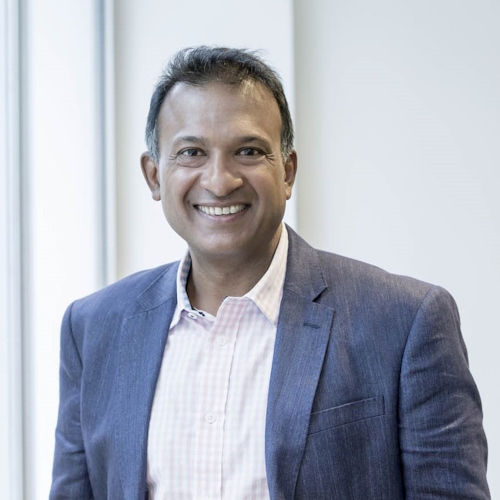
Professor Bobby GasparOrchard Therapeutics, UCL 
Professor Bobby GasparOrchard Therapeutics, UCL Bobby is a world-renowned scientist and physician and accomplished strategic and organizational leader with more than 25 years of experience in medicine and biotechnology. He is co-founder and chief executive officer of Orchard Therapeutics, a global gene therapy leader recently acquired by Kyowa Kirin with the goal of accelerating the delivery of new gene therapies to patients around the globe. Bobby has been a pioneer in gene therapy and the evolution of hematopoietic stem cell (HSC) gene therapy technology—including some of the first studies in patients with severe primary immune deficiencies—bringing it from some of the first studies in patients into late-stage clinical trials. He has led Orchard through the approval of Lib/Lenmeldy in the EU and USA for the treatment of metachromatic leukodystrophy (MLD). His unparalleled expertise and deep relationships with key physicians and treatment centers around the world are integral to Orchard’s efforts to identify patients with MLD and other severe genetic conditions through targeted disease education, early diagnosis and comprehensive newborn screening. Bobby is an honorary professor of pediatrics and immunology at the UCL Great Ormond Street Institute of Child Health and has led multiple clinical trials that have shown that gene therapy can successfully correct the genetic defect in immune deficiencies. He studied medicine and surgery at Kings College in London before completing his Ph.D. at the UCL Great Ormond Street Institute of Child Health.
|
| 14:05-14:25 |
Economic aspects of access to gene therapies for ultra-rare diseases: an impossible riddle
Is it ethical to deny life-saving treatment from a child affected by a rare disease simply because it is too expensive? Or is it ethical to spend a fortune saving “only” one life when the same amount of money could improve the health of many others? This is not a new dilemma but the recent development of (hopefully curative) gene therapies for life-threatening ultra-rare diseases has brought this discussion to a new level. In July 2023, Fondazione Telethon became the first not-for-profit organization to be marketing the authorization holder of an ATMP in Europe. Fondazione Telethon could, for example, pave the way for a different commercialization model of ATMPs for ultra-rare diseases where profit does not play a role. However, this model can only be complementary to the standard pharmaceutical development - not alternative to it. 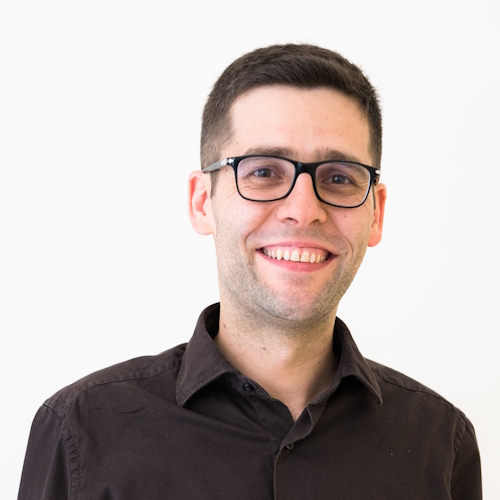
Stefano BenvenutiFondazione Telethon 
Stefano BenvenutiFondazione Telethon Stefano Benvenuti is Head of Public Affairs and Market Access at Fondazione Telethon (Italy). He is vice-chair of the funders constituent committee of the International Rare Diseases Research Consortium (IRDiRC) and co-chair of the Working Group on Health Economic Value of Personalised Medicine Approaches of the International Consortium for Personalized Medicine (ICPerMed). He is also member of the Italian National Committee on Rare Disease. He graduated in International Cooperation for Development at the University of Bologna in 2007 and later earned a master degree in health technology Assessment at Università Cattolica in Rome. As expert of EU policy and experienced manager of EU funded project, he joined Fondazione Telethon in 2016 to set-up the EU affairs office and coordinate the participation of Fondazione Telethon in European and International initiatives. |
| 14:25-14:45 |
Effective clinical development to enable patient access for gene editing therapies
Gene editing therapies have the potential to revolutionise the treatment of genetic disorders, but the path to patient access and reimbursement has challenges. These challenges result from uncertainties around patient need, clinical value, and the disease, reimbursement, and commercial landscapes. Effective clinical development of gene editing therapies requires a patient-centric approach and early collaboration across various stakeholders, both internal and external. This talk will examine how these challenges can be mitigated earlier in the product lifecycle by adopting a “new” clinical development mindset and how this approach differs from traditional development. 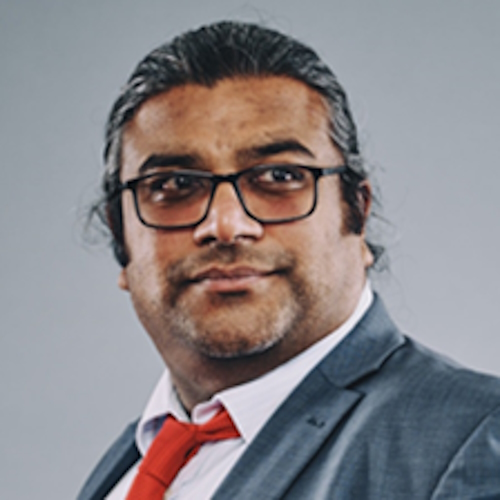
Dr Benit MaruSSI Strategy 
Dr Benit MaruSSI Strategy Dr. Maru, an academic physician, neuroimmunologist and health economist with extensive global experience in clinical research and development, translational medicine, health economics, real-world evidence, and medical affairs. His scientific and industry career has focused on neurology, neuroimmunology, immuno/haemato-oncology, and biological therapies for inflammatory diseases, nephrology, dermatology and rheumatology, and rare/ultra-rare disease. His career has also focused on health economic modelling and real-world evidence generation for the above areas as well as close collaboration with market access representatives. He has supported numerous gene therapy development programs and commercialisation of AAV based gene therapy. Interest in developing programs with patients first and developing with “end in mind”. |
| 14:45-15:05 |
Regulation and encouraging innovation in Gene and ATMPs
As the UK’s medicines regulator, MHRA’s role is to strike a balance between enabling ground-breaking scientific advancements and safeguarding public health. Gene and ATMP medicines generally represent a significant innovation, offering potential cures for previously untreatable conditions. Our robust regulatory approach involves rigorous evaluation of the safety, efficacy, and quality implications, and we work closely with industry, healthcare professionals, and the wider public to ensure that gene editing medicines meet the highest standards of safety and quality. Acknowledging the evolving needs of the sector and the challenges of regulating such personalised medicines, we are taking proactive steps to enable innovation without compromising patient safety. Looking forward, we are committed to evolving our regulatory framework to adapt to the fast-paced developments in Gene and ATMPs, ensuring that innovative medicines reach patients in a timely and safe manner. 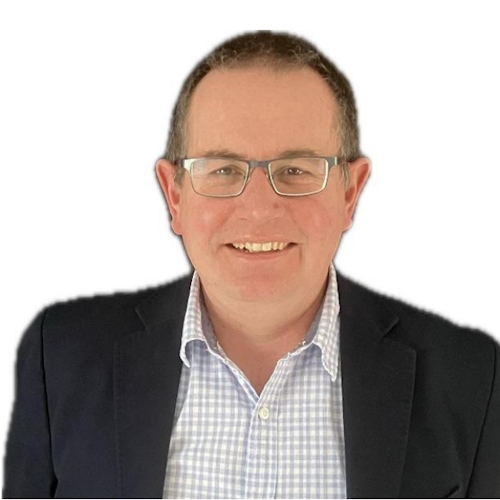
Julian BeachMHRA 
Julian BeachMHRA Julian oversees the portfolio that is designed to ensure the quality and access of products to the UK market - this includes scientific advice, licensing assessment, marketing authorisations for all innovative and established medicines. Experienced Leader with a demonstrated history of Quality, Regulatory and Operations in the pharmaceuticals industry. Skilled in Quality, Operations and Digitalisation of Systems, Operations Management delivery including OpEX / Six Sigma with a love for people development. Strong links to industry and regulatory bodies with quality focus. A Fellow of the RSC, with an MBA from Henley Business School, adding to BSc (Hons), Chartered Chemist and Chartered Scientist. |
| 15:05-15:20 |
Q&A
|
Chair

Steve Rees
AstraZeneca

Steve Rees
AstraZeneca
Steve Rees is Senior Vice-President of Discovery Sciences at AstraZeneca with responsibility for the discovery of novel drug candidates, using multiple therapeutic modalities, for projects for all AstraZeneca therapy areas. Prior to his current appointment Steve held positions of increasing responsibility at AstraZeneca including leadership of the Discovery Biology and Screening Sciences and Sample Management departments. He has served as Chair of the European Laboratory Research and Innovation Group, Chair of the European Council of the Society of Laboratory Automation and Screening and as Industry Trustee of the British Pharmacological Society and is a member of the Royal Society Science, Industry and Translation Committee. Steve was awarded an OBE by Her Majesty the Queen in 2021 for services to science and the COVID19 response.
| 15:50-15:55 |
Introduction to panel

Steve ReesAstraZeneca 
Steve ReesAstraZeneca Steve Rees is Senior Vice-President of Discovery Sciences at AstraZeneca with responsibility for the discovery of novel drug candidates, using multiple therapeutic modalities, for projects for all AstraZeneca therapy areas. Prior to his current appointment Steve held positions of increasing responsibility at AstraZeneca including leadership of the Discovery Biology and Screening Sciences and Sample Management departments. He has served as Chair of the European Laboratory Research and Innovation Group, Chair of the European Council of the Society of Laboratory Automation and Screening and as Industry Trustee of the British Pharmacological Society and is a member of the Royal Society Science, Industry and Translation Committee. Steve was awarded an OBE by Her Majesty the Queen in 2021 for services to science and the COVID19 response. |
|---|---|
| 15:55-16:30 |
Panellists

Fyodor UrnovUniversity of California, Berkeley 
Fyodor UrnovUniversity of California, Berkeley Fyodor Urnov is a Professor of Molecular Therapeutics at UC Berkeley and a Scientific Director at its Innovative Genomics Institute (IGI). He co-developed the toolbox of human genome and epigenome editing, co-named genome editing, and was on the team that advanced all of its first-in-human applications to the clinic. He also led the effort that identified the genome editing target for an approved medicine to treat sickle cell disease and beta-thalassemia. A major goal for the field of genome editing and a key focus of Fyodor's work is expanding access to CRISPR therapies for genetic disease. As part of that effort Fyodor directs the Danaher-IGI Beacon for CRISPR Cures - a first-in-class academia-industry partnership developing and advancing to the clinic scalable CRISPR-based approaches to treat diseases of the immune system. 
Suk See De RavinNational Institutes of Health 
Suk See De RavinNational Institutes of Health Suk See De Ravin is a Senior Research Physician at the National Institutes of Allergy and Infectious Diseases (NIAID), National Institutes of Health. She received her paediatric training at Sydney Children’s Hospital, Australia, and after completion of her PhD in Primary Immunodeficiency Diseases (PID), joined Laboratory of Host Defences at NIAID to continue work on novel gene and cell therapies of PID. She has been working on haematopoietic stem cell gene therapy for X-linked Severe Combined Immunodeficiency and Chronic Granulomatous Disease. Current lentivector gene therapy is helpful for many patients with PID but random vector insertions and lack of gene regulation remain important concerns. Using state-of-art functional gene correction strategies, she has applied base-editing to precisely repair CGD and XSCID-causing mutations, a precise medicine that will improve safety and efficacy of gene therapy that will hopefully be expanded into treatment of the broader range of PIDs. 
John SpoorsNICE 
John SpoorsNICE John is responsible for the delivery of the commercial and managed access function within the Centre for Health Technology Evaluation. The role involves developing the strategy and directing the work of the team that engages with NHS England, the Department of Health and the life science industry on patient access schemes and commercial and managed access arrangements for the NHS. John previously worked at the Medicines Policy Analysis Team (MPAT) at NHS England where he supported a number of commercial policy areas including horizon scanning, Advanced Therapy Medicinal Products (ATMPs) and managed access. 
Dr Birgit SchultesIntellia Therapeutics 
Dr Birgit SchultesIntellia Therapeutics Dr. Birgit Schultes is the SVP, Head of Cell Therapy, at Intellia Therapeutics Inc. She brings over two decades’ experience in the biotechnology and pharmaceutical industry and leads a multidisciplinary cell therapy team focused on ex vivo applications of CRISPR/Cas9 since 2017 and acts as the Program Lead for a preclinical stage CAR-T cell for solid tumors. Her work is focused on CRISPR-engineered CAR-T and TCR-T cells as well as synthetic Tregs for immuno-oncology and autoimmunity indications, including allogeneic and solid tumor solutions. Prior to joining Intellia, Birgit served as a Senior Director at Unum Therapeutics (now Cogent Biosciences, Inc.), where she directed the preclinical efforts for Unum’s universal T cell programs. Earlier in her career, Birgit held a variety of translational research roles, working on different biologics for immuno-oncology and immunology applications at Momenta Pharmaceuticals, United Therapeutics and AltaRex Corp. Dr. Schultes holds a Ph.D. in Immunology and a M.S. in Cell Biology from the University of Bonn, Germany. |
